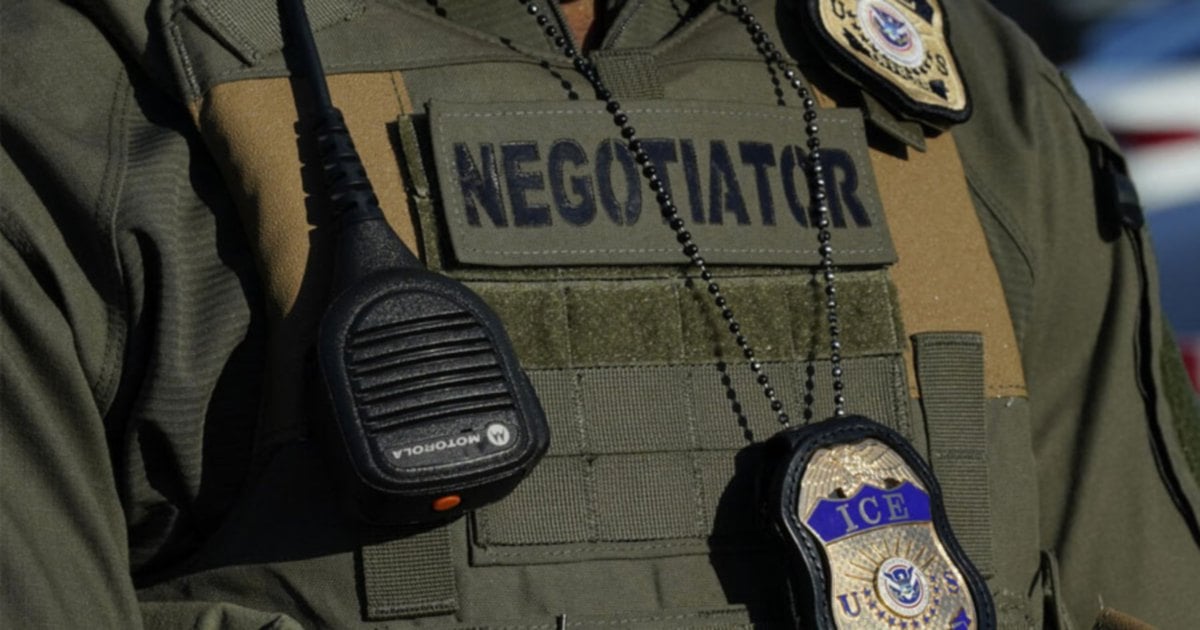NATALIA fled Russia fearing imminent arrest for her family’s opposition activism and sought political asylum in the United States. But instead of refuge, she found herself locked in jail for over a year, separated from her husband and children and dreading deportation.
With the Trump administration stepping up removals as part of its sweeping anti-immigration crackdown, rights activists warn that deporting Russian dissidents puts them at risk of prison and persecution back home.
“I supported the opposition, I supported opposition activists who were against (Russian President Vladimir) Putin’s regime,” said Natalia in a phone interview from an immigration detention centre in Louisiana. “If I return to Russia, I will be arrested.”
Clad in an orange prison uniform, Natalia shares a dormitory with about 60 other women sleeping in bunk beds.
Showers and toilets are in the same room, behind curtains that don’t offer privacy.
Thousands of Russians have applied for asylum in the US, many by crossing the border from Mexico, since Russia’s invasion of Ukraine in 2022 and Moscow’s ensuing suppression of dissent.
About 85 per cent of Russian asylum claims adjudicated last year were approved, according to official data, but detainees, lawyers and rights groups say denials have increased in recent months, while detainees are subjected to arbitrary detention and not given a fair chance to defend themselves in court.
Nearly 900 Russians, many of them asylum-seekers, have been deported back home since 2022, official data shows.
They include some 100 who were sent back under convoy over the summer on two specially chartered flights, precluding them from seeking refuge in a third country, according to the Russian America for Democracy in Russia (RADR) group and the Russian Antiwar Committee.
The deportees faced lengthy interrogations on arrival and at least two of them were arrested, including a serviceman who deserted following the Ukraine invasion and an opposition activist, the groups said.
“It’s a catastrophe,” said Dmitry Valuev, RADR’s president.
“It cannot be done. They are deporting people who face real danger in Russia.”
Long-time political activists, Natalia and her husband campaigned for the late opposition leader Alexei Navalny, whose organisation has since been outlawed and declared “extremist” in Russia, while his supporters were persecuted.
After police searched their apartment outside Moscow in 2023, Natalia’s husband and their pre-teen son flew to Mexico and crossed the US border.
In the US, they surrendered themselves to immigration authorities and were released on parole to await their political asylum hearing in a midwestern state.
Natalia followed them a year later, but ended up detained.
She has spent nearly 1½ years in jail, one of an estimated 1,000 Russian citizens held in immigration jails across the country, according to RADR. Lawyers say married couples are often sent to prison in different states, often depriving one of the spouses of a strong asylum case.
In April, a judge denied Natalia’s request for political asylum, despite the family’s prior arrests for anti-government protests and a history of involvement with a banned opposition group. She has filed an appeal.
“I have a deep sense of disappointment, I thought there is some kind of justice and reason here,” said Natalia.
“I could never believe that I would be treated in court the same way as in Russia.”
Another Russian asylum-seeker held with Natalia has also lost her case and is awaiting removal.
Her husband Yuri was deported on a commercial flight over the summer, after a year in detention, but was able to get off the plane in Morocco and buy a plane ticket to a third country.
“It’s completely inhumane not to give people an opportunity to get off the flight,” said Yuri from a South Asian country where he is currently staying.
“Fine, you want to kick them out of America, but to do this?”
At the Louisiana detention centre, Natalia says security guards can throw away their meagre belongings or forbid them to use a towel to keep warm during a walk outside. Some say they are going hungry and are not receiving proper medical care.
“I don’t cry any more, I know I need to live to see the appeal,” Natalia said.
“My biggest sorrow is not being able to take part in my children’s lives.”
* The writer is from AFP
© New Straits Times Press (M) Bhd






